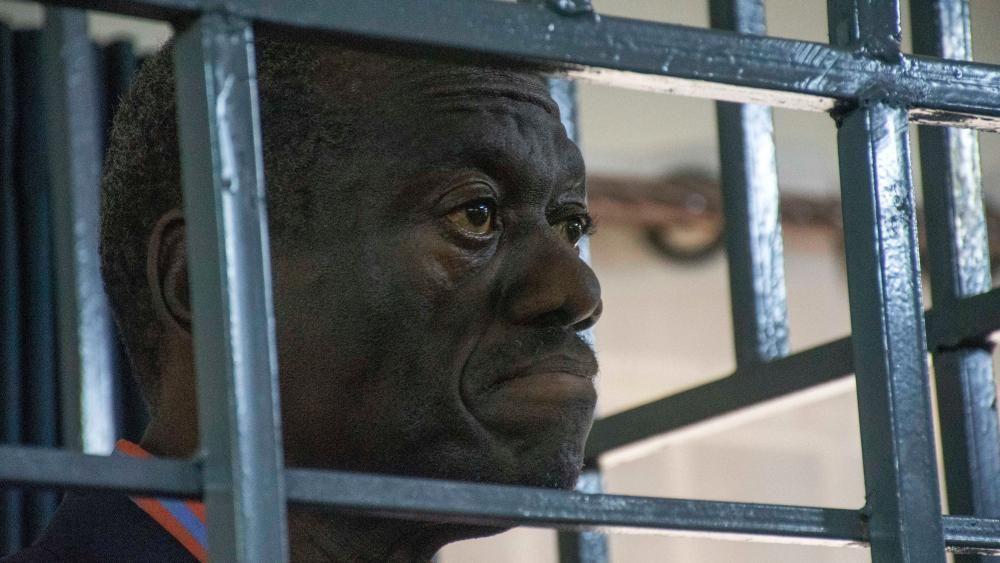The situation surrounding Ugandan opposition leader Kizza Besigye has raised significant concern, particularly regarding the treatment of prisoners during the festive season. His wife, Winnie Byanyima, has publicly condemned the ban on visitors for inmates on Christmas Day, labeling the policy as “cruel and inhumane.” Besigye, aged 68, is facing charges of possessing pistols and attempting to procure weapons abroad, charges he staunchly denies. His trial has been delayed until next month, and as a precaution against potential security issues, prison officials have announced a seven-day suspension of visitations starting on Christmas Eve. This security measure is described by authorities as a response to historically heightened risks of prison escapes and disturbances during the festive period.
In a personal act of defiance, Byanyima plans to camp outside Luzira Prison on Christmas to see her husband and provide him with food. Despite the prison authorities’ directive forbidding her from seeing Besigye, she insists on delivering nourishment in person, expressing profound distrust of the prison system’s capability to safeguard his well-being. Byanyima described the distressing conditions of Besigye’s confinement, revealing that he lives in a small cell secured behind six gates. She conveyed that her husband remains resilient while also expressing deep concern for his safety, highlighting the emotional toll this experience has taken on them both.
Kizza Besigye’s political history is deeply intertwined with the governance of President Yoweri Museveni, who has ruled Uganda since 1986. Having lost four presidential elections to Museveni, Besigye is a prominent figure in the opposition, although he has been less active in recent months and notably did not contest the 2021 elections. His recent notoriety surged after he was forcibly abducted in Kenya and returned to Uganda, facing legal battles that have rekindled discussion about the oppression of dissent in Uganda. Besigye, currently held in custody, has had his detention extended, dashing any hopes his family had of a reunion during the holidays.
Prison officials, led by spokesperson Frank Baine Mayanja, have justified the visitation ban as a necessary step to maintain security during the holiday season. The ban was initially set to last a month but was later reduced to seven days amid public outcry. Mayanja provided insight regarding the motivations behind the ban, explaining that in his experience, Christmas can lead to unrest among prisoners, with some potentially planning to escape. This rationale highlights the complex nature of prison management during sensitive periods, as the authorities attempt to balance security concerns with the rights and needs of inmates.
Byanyima’s concerns extend beyond the visitation ban; she has also expressed unease regarding a recent change in leadership at Luzira prison, particularly questioning the appointment of a “young and inexperienced” official. Her comments underscore a growing mistrust in the system, fueled by her husband’s history of political persecution. Reflecting on their past struggles, Byanyima alluded to earlier instances where Besigye faced fabricated charges, indicating a pattern of harassment from the government that persists even today. Besigye himself has repeatedly voiced his opposition to military trials for civilians, arguing that such practices impede justice. Museveni, on the other hand, has defended the use of military courts, emphasizing their contribution to national stability.
The case of Kizza Besigye encapsulates broader issues of political freedom and rights within Uganda. Opposition parties frequently raise concerns about government measures that they perceive as attempts to suppress political competition. Despite assurances from Museveni’s supporters about his commitment to national stability, the consistent targeting of opposition figures fosters an atmosphere of fear and uncertainty, calling into question the legitimacy of Uganda’s political environment. With nearly four decades of Museveni’s rule, the ongoing tensions between the government and opposition, as exemplified through Besigye’s treatment, illustrate the continued struggles for democratic freedoms in Uganda. The unfolding events surrounding the ban on prison visitation during the holidays not only highlight the personal impact on Besigye and his family but also signal the persistent struggle for human rights within the context of Uganda’s complex political landscape.

